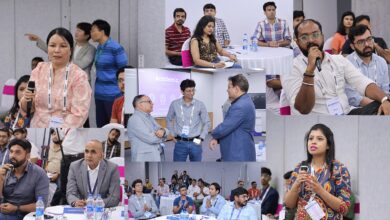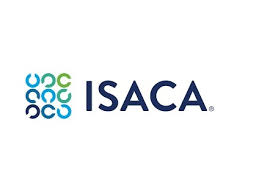Panel Discussion on Gender Transformative TB Response in India for a Sustainable Tomorrow
The Karnataka Health Promotion Trust (KHPT) in collaboration with the United States Agency for International Development (USAID), the National … Business Wire IndiaThe Karnataka Health Promotion Trust (KHPT) in collaboration with the United States Agency for International Development (USAID), the National Tuberculosis Elimination Program (NTEP), Global Coalition of TB Advocates (GCTA) and the Stop TB Partnership, organized a webinar focusing on creating, sustaining and accelerating a gender-transformative TB response in India for a sustainable tomorrow.
The webinar was organized on the eve of International Women’s Day (IWD). The discussion was guided by this year’s theme for IWD, Gender Equality Today for a Sustainable Tomorrow. The webinar brought together policymakers, health activists, and think tank leaders who deliberated upon the need for a gender transformative TB response as a means of ensuring a people-centred rights-based response at all levels.
The session commenced with an opening address by Dr Sangita Patel, Director, Health Office, USAID. The panelists included Dr Rajendra Joshi, DDG, National Tuberculosis Elimination Programme, Ministry of Health and Family Welfare, Government of India, Dr Dalbir Singh, President, Global Coalition Against TB, Dr Amy Piatek, Senior TB Technical Advisor, USAID/ Washington, Dr Lucica Ditiu, Executive Director of the Stop TB Partnership, Geneva, Ms Blessina Kumar, CEO Global Coalition of TB Advocates, Dr K.S. Sachdeva, Regional Director – The Union South East Asia at International Union Against Tuberculosis and Lung Disease (The Union), Dr Rehana Begum, Project Director, Breaking the Barriers, KHPT. The webinar was hosted by Dr Sukriti Chauhan, Advocacy Lead, KHPT.
In her opening address, Ms. Sangita Patel, Director, Health Office, USAID/India emphasized USAID’s commitment to adopt a gender lens for all their interventions and said, “For the United States government, advancing the rights of women and girls is both a moral and strategic imperative. Here in India, USAID and its local partners strive to improve the lives of citizens to participate fully in, and benefit from, the development of their societies. USAID incorporates the advancement of gender equality as an essential component of efforts to transform communities and countries. USAID and our partners prioritize gender considerations when designing and implementing all programs, including TB programs, where our work includes identifying and correcting gender-based inequities in TB service delivery.”
Dr Dalbir Singh, President, Global Coalition Against TB said, “Women and transgender people have less access to health care services than men due to cultural norms and inequalities. We risk the lives of lakhs of people by not accounting for gender inequalities in the TB response. The need of the hour is a gender-transformative lens for combating and eliminating TB from India and the world.”
Dr Rajendra Joshi, Deputy Director General, National Tuberculosis Elimination Program, Ministry of Health and Family Welfare, said, “As India continues to work towards the goal of TB Mukt Bharat, it is essential to account for the voices of the most vulnerable and marginalised communities. NTEP has been using a multi-stakeholder and participatory approach. Our work also brings together women and transgender populations and ensuring their feedback is incorporated to make the interventions holistic and impactful.”
Dr Lucica Ditiu, Executive Director of the Stop TB Partnership, Geneva, said, “People who are marginalized due to their gender identity, including women and Transgender people have to go through daily suffering and discrimination. We cannot let this be the norm anymore. All of us need to come together and support women and transgender people at all levels. We must break barriers of accessing care and stigma. That is the only solution.”
Ms Amy Piatek, Senior TB Technical Advisor, USAID/ Washington said, “Evidence finds that men have a higher chance of contracting TB, however real life experiences show that women and transgender communities face a disproportionate social response. If we are to ensure a holistic response where the disease is eliminated along with its negative social connotations, it is essential to work with all actors involved in the fight against TB. At USAID, we keep gender at the centre of our work, building sustainable structures, developing champion voices, funding using a gender analysis.”
Drawing attention to the need for meaningfully engaging the affected communities, Ms. Blessina Kumar, CEO, Global Coalition of TB Advocates said, “More women and transgender people from affected communities need to be engaged in efforts to design and enhance access to TB services. Affected communities are not just passive recipients of care but valuable partners to end TB. TB prevention, diagnosis and treatment should form core components of health interventions for women and transgender people. This also needs to be addressed for the LGBTQ+ community, the sex workers, women using drugs and women with disabilities who have to go through additional stigma and discrimination in seeking healthcare.”
Closing the Panel, Dr Rehana Begum, Project Director, Breaking the Barriers, KHPT said, “A human-centred approach is vital for effective TB response. KHPT has been working with community structures to make the fight against TB inclusive, patient-centred & people-centric. Recently, to guide the Breaking the Barriers team that works on ground, KHPT developed a gender brief to ensure that the gender differences are incorporated at the level of intervention and among the trainers with equal representation from all groups. Our experience shows that communities have immense potential for building awareness and promoting health seeking behaviour. The resilience displayed by the communities has been a real learning experience.”![]()
Disclaimer: This content is distributed by Business Wire India.



